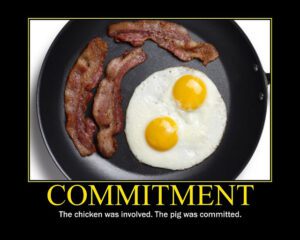 A fresh look at the pebble: is it a secret commitment?
A fresh look at the pebble: is it a secret commitment?
When you are a transformational teacher, part of your job is to do the work you ask your students to do, on yourself and on your life.
Why? Aren’t you already transformed? No, transformation doesn’t last. Transformation is a momentary opening to the beyond, beyond what you already know and hold true, and that momentary opening doesn’t stay open for any longer than a few seconds, maybe minutes.
Which means, that if you don’t take an action consistent with the new opening you see, then the transformation is lost, maybe forever.
I am a transformational teacher, and I never pretend to have transformed: I do the work, every day, just like I ask you to do it.
Transformation is one of those phenomena when you can see that the saying is quite true: “The truth will set you free, but first it will piss you off…” Sounds funny, but it really isn’t.
Doing work, day in and day out, being pissed of by what you see is nobody’s dream life, and yet, if you want a bigger life, a less predictable, less scripted life, then the only path I have seen that works is ongoing transformation.
 With that said: the distinctions we are working nowadays are the Pebble and its relationship to your life, your machine.
With that said: the distinctions we are working nowadays are the Pebble and its relationship to your life, your machine.
Yesterday I asked my students to assist me seeing my machine. It is near impossible to see every aspect of your machine without a sideway look of an observer who is not you. They asked questions I would have never asked. In fact the questions sounded stupid and irrelevant, and after a first firm NO, I looked if considering the questions could be relevant, if I could see something I had never seen.
Yeah, I could and I did… and it pissed me off. It pissed me off that they could see something I could not see… even though I asked them to assist me because I knew they would… I find that really funny, by the way. That I would get angry because they could see what I asked them to look for…
It turns out, it wasn’t me angry, it was the machine that was angry. The machine wants to run your life, and it can only do it effectively, if you can’t see it, or you can’t see it fully.
In that call yesterday, I could see several moves of my machine: I saw that what triggers the machine is greed for significance, what allows the trigger to actually start the machine is that for a moment I close my eyes and let the machine lull me into complacence…
Contrary to what you do in similar situations, I kept at it after the call. I wasn’t looking for the missing parts, I expected them to emerge, to show themselves to me. Looking for something makes it hide, but allowing and staying conscious, makes it show up.
I found out that what makes the machine go on and go on and go on, and destroy my life every year or so, is my hidden desire, my hidden commitment to living a life that inspires ME: to try to win in the face of impossible odds.
In essence, I have a hero complex, and it eats my lunch.
So what is there to do? Is it going to run my life in spite of the fact that I saw it?
I have a hunch that it will continue to want to run my life, but what is possible is that I can learn to manage the machine, so I can have my cake and eat it too.
In my case, that would be having both my hidden commitment and some success at the same time.
This is, in essence, what I teach in the Pebble course, which is level2 of the Brilliance at Will course…
It has two parts: Part 1: distinguish the machine, just like I did. Part 2: learn to manage it so you don’t have to start from zero, that you don’t have to crash, that you can have what you work for, strive for, and more.
This is a ground breaking process: no one has done it before, including myself.
The eight Pebble webinars are an introduction to the course, and include one-on-one conversations to distinguish your machine, to the degree that it can be done in a single conversation of about 30 minutes. The calls were recorded and you can see yourself in nearly every conversation…
 People love it, and they come back to do it again… it must be good, I love doing it.
People love it, and they come back to do it again… it must be good, I love doing it.
Finding out your secret unconscious commitment is the key to start managing it. Some unconscious commitments that I have seen: not to stand out, not to make a mistake, to be stuck, to be small, to be taken care or, to be significant, etc.
What do you think yours is?
Comment below… I’d love to hear you…
Read the original article: A fresh look at the pebble: unconscious commitment to fail